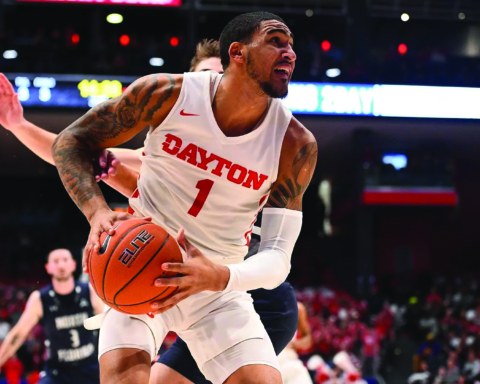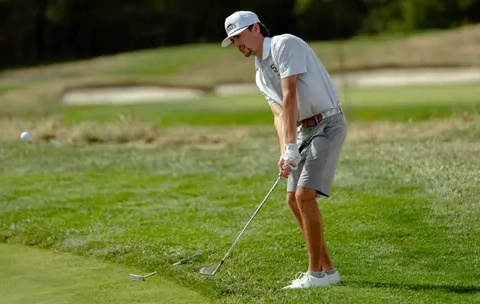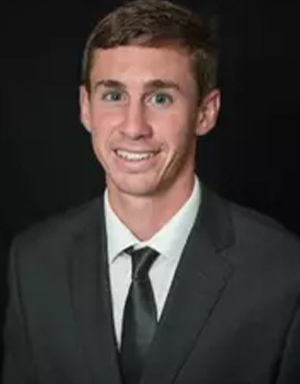The National Basketball Association had plenty of strong storylines during its most recent season to keep people talking. LeBron James got to his eighth straight NBA Finals, and then his subsequent move to the Los Angeles Lakers. The Warriors winning another title and just being great at basketball. Kawhi Leonard sitting out the majority of a season in his physical prime, and was Ben Simmons a rookie or not?
It was two stories from off the hardwood, however, which may have the biggest long-term impact on the sports and media worlds going forward: Kevin Love and DeMar DeRozan’s mental health.
Both athletes, with several All-Star appearances between them, seemingly have it all. Money. Fame. Admiration. Success.
The pair also have something that, according to Newsweek, one out of every five Americans deal with: mental illness.
Love, via the Players’ Tribune, admitted to having a panic attack during a game against the Atlanta Hawks last November. The article, titled, “Everyone Is Going Through Something,” described, among other things, what Love felt in the moment and the fear of others finding out the truth.
DeRozan, separately, in an interview with The Toronto Star, admitted to his struggles with depression.
These stories were national stories, covered extensively by news outlets, hopefully continuing to educate people, myself included, that athletes are just that: people. And they face issues people face too.
I don’t think many would argue that having professional athletes opening up about these types of issues like Love and DeRozan are inherently bad things. These two may have even given other athletes confidence to speak about their personal troubles.
How about athletes without platforms that pros have?
College student-athletes. High schoolers. Kids.
Mark Titus, staff writer for The Ringer, spoke on The Bill Simmons Podcast about how these are the athletes that can gain the most from professionals speaking out.
“Being a high-school/college-aged athlete and going through [mental illness] is…the most confusing thing in the world,” Titus said. “You have been conditioned every single day in practices and weightlifting and all that sort of stuff to think you are macho, you are a badass, we are going to compete and we are not going to talk about our feelings…to have [DeRozan and Love] basically say kids in college that are competing every single day that it is okay and doesn’t make you weak to say, ‘I need help with this.’ That is the one thing that stands out to me.”
Titus, a former walk-on basketball player at The Ohio State University, speaks from experience. He has struggled with depression himself, and feels college and high school athletes are not likely to look out and find help because of the demands of the sports.
This touches on another point. The culture surrounding sports. Sports, by nature, are competitive. You try to exploit the weaknesses of your opponent, while at the same time pushing your body and mind to the absolute limit. In team sports, you must work as a cohesive unit, all in sync to achieve maximum success.
If you are a player that has opened up about having anxiety, might some players on your team look at you differently? Should they be allowed to? What if this is extrapolated to the professional level, and teams do not want to sign you because you may suffer from some sort of mental illness. Is that fair? Is that right?
Love mentioned this in his article.
“I didn’t want people to perceive me as somehow less reliable as a teammate,” Love explained.
And sports culture is incomplete without fans. What is their role in sports now? Has it changed? Must it change?
Think about it. You go to a sporting event at any level, and there almost always seems to be that one overzealous fan, shouting cliches such as “man up,” while belittling the opponents’ “toughness.”
Unfortunately, sports, at times, can be cesspools of pseudo-masculine tropes packaged as “passion” or “toughness.” Fans can be at the center of this.
Social media, particularly Twitter, is the playground of instant fandom, and it is not always nice.
Jokes. Memes. This brand of reaction are now part of sporting culture. I, myself, am complicit in this. At what point should I step back and think about whether my actions are detrimental to someone else? Do fans now have a responsibility to be more empathetic towards players?
However, if a player has a bad game, should you be able to say they had a bad game without having to consider where their head is at? Where is the line?
Mental health education continues to permeate our society. There is a greater understanding that, despite the amount of money you make, your level of fame, your level of admiration or your success, mental illness can impact you.
How sports, overall, deals with these new ideas, remains to be seen.

Current NBA Players that Played at the Reilly Center
BY: CARSON HAYEK; SPORTS EDITOR Photo Courtesy of daytonflyers.com Built in 1966,




